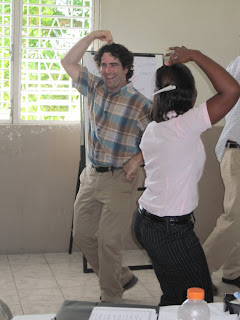Matt and/or Julie Emslie
c/o Leila Webster, Country Director
Peace Corps
8 Worthington Avenue
Kingston 5, Jamaica
okay. there. now you don't have any more excuses. :)
and a few pictures of our past weekend...washing our clothes (by hand of course) and hanging out with our "siblings" at the beach:




p.s. the fruit was ackee. the black olive looking things are actually the seeds. someone once described ackee as very similar to scrambled eggs, in look, texture, and taste. and they were right.










